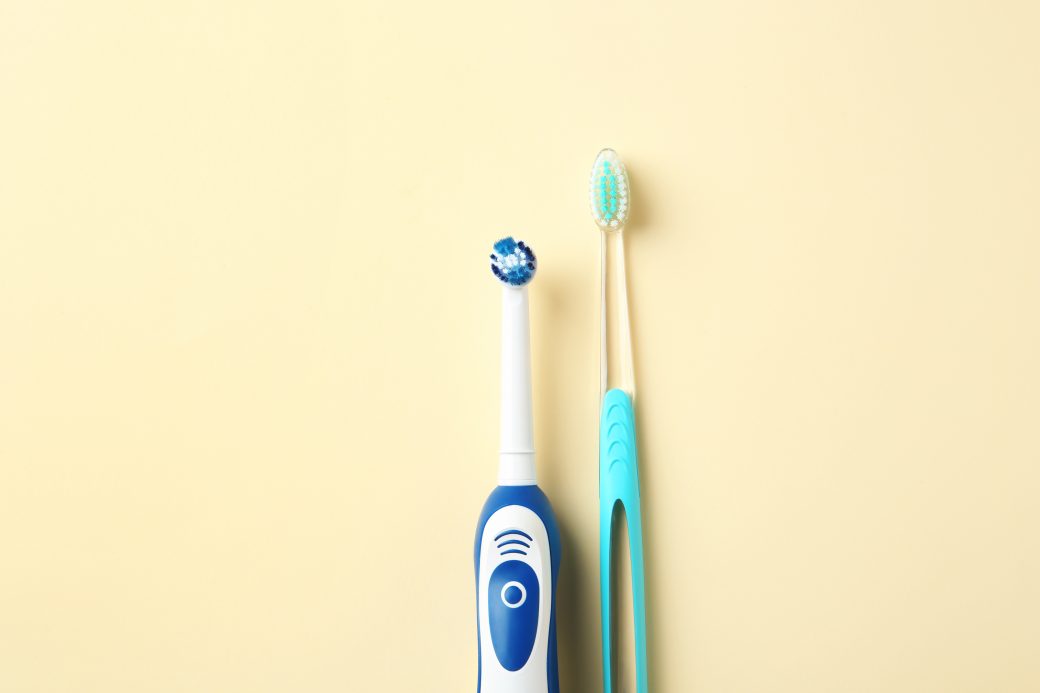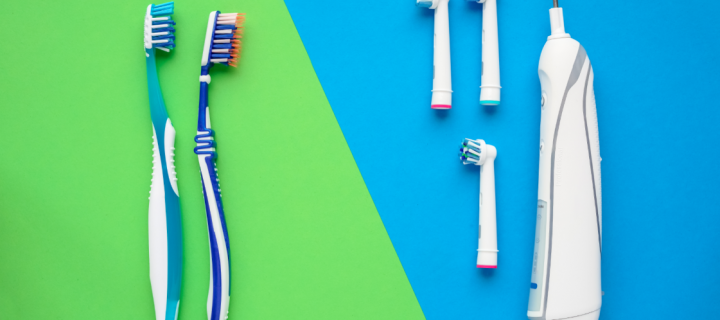Whether its toothpaste brands or the effectiveness of whitening strips, dentist recommendations always vary.
But if there’s one thing they can agree on, it’s that brushing twice a day for 2 minutes is the most important part of your dental hygiene (and flossing, can’t forget flossing).
Brushing gets rid of all the bacteria that’s decided to come together for a pow-wow on your pearly whites. That leads to plaque, or more commonly known as a major dental problem.
With the importance of brushing in mind, it begs the question – what’s the best tool to brush your teeth?

Yes, we know it’s a toothbrush. But should you opt for an electric one, or stick to your trusty, manual toothbrush?
A 2014 review of studies by the Independent Cochrane Collaboration sheds more light on the question. According to their findings, electric toothbrushes are more effective at cleaning plaque. Additionally, they found that powered brushes have an 11 percent reduction in gingivitis after three or more months of usage.
Plus, oscillating powered toothbrushes are best at reducing plaque compared to their sonic powered cousins.
Related: 7 Foods Dentists Say You Should Avoid
Having said that, you don’t have to trash your regular toothbrush for an electric – what you got can work just fine.
“If you get good checkups and your dentist is confident you’re doing a thorough job, you don’t need to change from a manual brush,” Matt Messina, D.D.S., a consumer adviser with the American Dental Association (ADA), said.
Regardless of which route you go, experts suggest using a brush with soft bristles, and brush gently. Ultimately, it really comes down to the frequency and technique of how you brush, not the brush you use!
Photo Credit: Ugis Riba/Shutterstock.com; New Africa/Shutterstock.com












